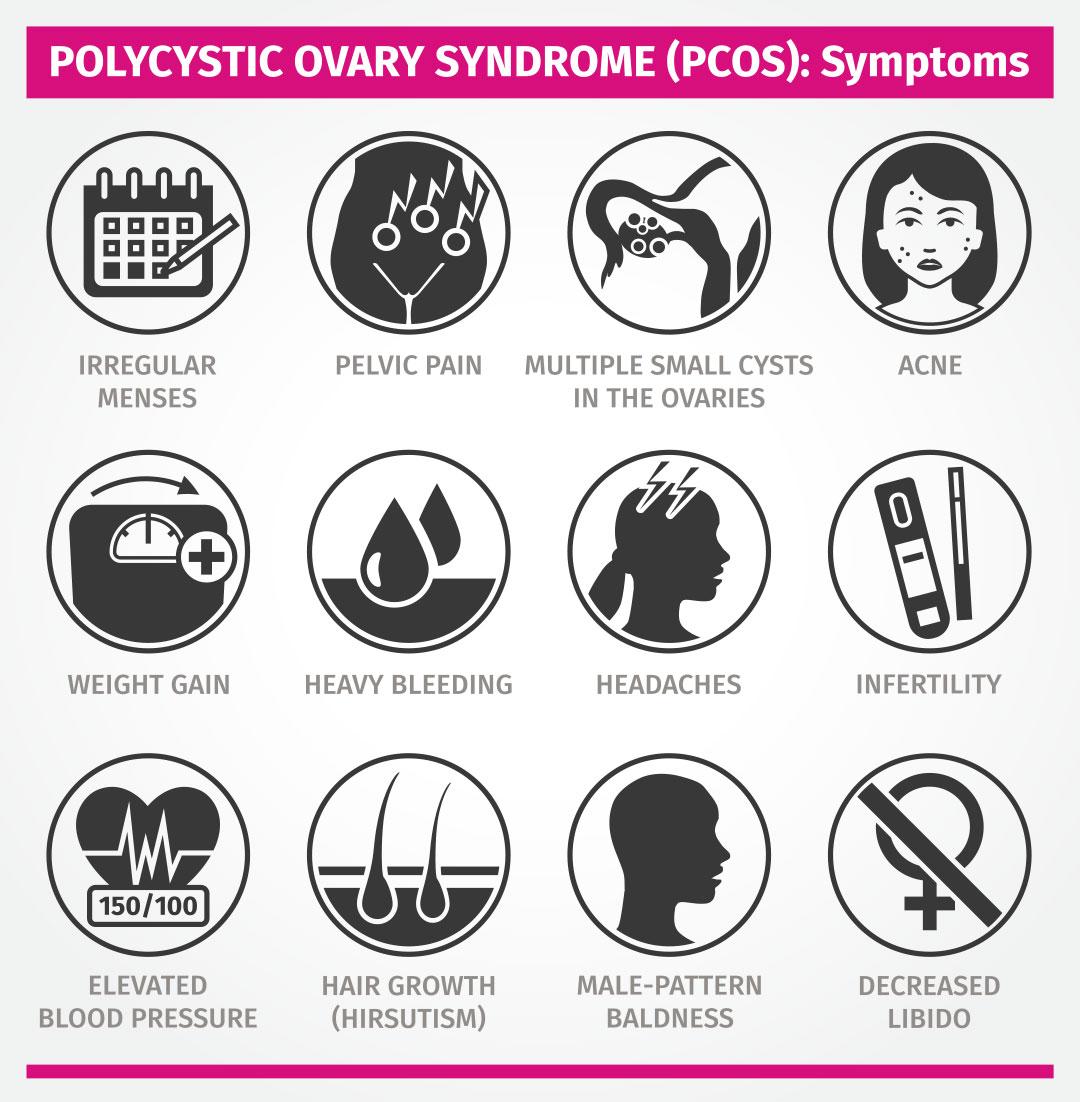Understanding the Impact Of PCOS on Your Mental Health

Are you a part of team Teal?
Yes, I am talking about Polycystic Ovary Syndrome. A hormonal imbalance condition experienced by 1 in 10. Initially thought to be linked with various physical health issues it is now found to be linked with our mental health too. The sad and surprising part is that women with PCOS may find that they are always tired, have less patience, and have a lower stress tolerance, but they often attribute it to normal life and accept it as normal.
So, on this year’s PCOS Awareness Month Calm Sage is taking an initiative to help you become more aware of PCOS, its impact on your mental health and life in general.
Read it till the end to know the story of PCOS & Mental Health.
Understanding PCOS
Hormones are chemical messengers that control the way the body works. PCOS stands for Polycystic Ovary Syndrome. It is a hormonal disorder causing enlarged ovaries with small cysts on the outer edges.
The main indicator of PCOS

You don’t have to tick on all these symptoms to have PCOS.
Causes of PCOS
The three identified causes of PCOS are:
- Excess insulin.
- Low-grade inflammation.
Alarming facts about PCOS
Here are important and alarming facts about PCOS:
- 10-15% of women are estimated to have Polycystic Ovary Syndrome. Which means 1-in-10 women have PCOS.
- While 50% of women with PCOS go underdiagnosed.
- 50% of women with PCOS experience some of the other physical issues.
The Link Between PCOS and Mental Health in Women
Now that you have understood what PCOS is all about let us see how it impacts our mental health. We all know that our mind and body are closely related. PCOS and its impact on our mental health is no exception to this rule of thumb. PCOS is found to influence our mental well-being in different ways. Below we have discussed:
1. PCOS & Stress
Many studies have time and again showed that PCOS & stress are closely related. One such study was conducted by Zangeneh, Jafarabadi, Naghizadeh, Abedinia and Haghollahi (2012), on 81 patients with PCOS. The descriptive results showed that 8 (9.9%) participants did not have any signs of stress, 32 (39.5%) had neurotic stress, 29 (35.8%) had high and 12 (14.8%) had extremely high levels of stress. This study showed that clinical signs of PCOS were closely associated with psychological distress.
2. PCOS & Depression
PCOS has an impact on our body and hormones both, which increases the chances of it to lead to depression. Research has found that almost 1/4th of women with PCOS show signs of depression.
A study conducted by Rasgon, Rao, Hawng, Miller, Korenman and Altshuler (2003) on 32 women with PCOS found a high prevalence of depression among women with PCOS, and an association between depression and PCOS markers. Depression was associated with greater insulin resistance and higher body mass index.
3. PCOS & Anxiety
Anxiety is closely related to PCOS, its symptoms, and hormonal disbalance. Low level of progesterone in women with PCOS is linked with increased levels of anxiety hormones. Studies have even shown that PCOS leads to an increased level of anxiety more than any other mental health condition.
4. PCOS & Emotional Distress
Emotional distress symptoms are found to be associated with PCOS. Veltman, Boivin, Eijkemans and Fauser (2012) examined emotional distress and its associated features in women with PCOS. They performed a comprehensive meta-analysis of comparative studies reporting measures of depression, anxiety or emotional-subscales of quality of life (emoQoL).
The results included 28 studies (2384 patients and 2705 control women) in which higher emotional distress was consistently found for women with PCOS compared with control populations.
5. PCOS & Quality of Life
The extent to which a person is living a good life also gets impacted due to PCOS and its symptoms. Many studies and meta-analysis have supported the same. In one such study by Barnard, Ferriday, Guenther, Strauss, Balen and Dye (2007) it was studied that polycystic ovary syndrome (PCOS) is associated with poor quality of life (QoL), in women with PCOS and healthy controls.
Results showed that women with PCOS had lower quality of life on the seven factors (emotional disturbance, weight, infertility, acne, menstrual symptoms, menstrual predictability and hirsutism). Weight being the largest contributor to poor quality of life. Therefore, it becomes important to bring important lifestyle changes to improve on the quality of life.

Management Approach of PCOS
The good news is that you can safeguard yourself from all these impacts of PCOS on mental health by managing PCOS. There are various ways to manage PCOS and its impact on mental health. The approaches discussed below majorly centers around lifestyle changes. By bringing these changes in your life your mental well-being will improve and your symptoms of PCOS will decrease significantly.
1. YOGA
The science of yoga works at a level that is much subtler and deep than just the physical body level. Yoga helps release deeply stored stress in the system, which can help improve PCOS symptoms. Here are the top 15 yoga asanas and pranayama that are proven to bring relief in PCOS:
- Baddhakonasan, or Butterfly Pose
- Supta Badhakonasana, or Reclining Butterfly Pose
- Bhujangasan, or Cobra Pose
- Naukasan, or Boat Pose
- Dhanurasan, or Bow Pose
- Balasana, or Child Pose
- Marjariasana, or Cat Pose
- Bitilasan, or Camel Pose
- Prasarita Padottanasana, or Wide-legged Forward Bend
- Padmasan, or Lotus Pose
- Setu Bandha Sarvangasana, or Bridge Pose
- Paschimottanasana, or Seated Forward Bend
- Shalabhasana, or Locust Pose
- Bhramari
- Kapaalbhati
2. Proper Diet
A low-fat, high-carbohydrate diet may increase insulin levels, so it is recommended for women suffering from PCOS to consider a low-carbohydrate diet. One shouldn’t severely restrict carbohydrates and should choose complex carbohydrates instead. Reason being that they are high in fiber. The mantra to manage PCOS is, more fiber in a food, the more slowly it’s digested and the more slowly the blood sugar levels rise, and more relief in PCOS symptoms. You can get your dose of high-fiber carbohydrates from whole-wheat pasta, whole-grain bread and cereals, bulgur wheat, beans, barley, and brown rice.
3. Exercise
Regular exercise greatly helps women with PCOS in many ways, such as improving mood and preventing weight gain, level of depression, the experience of anxiety, and heart disease. Try and find ways to exercise that you enjoy such as, walking with friends and make it a regular part of your routine.
4. Lifestyle Modification
The most impactful way to cure PCOS is by adopting a healthy lifestyle. The way one eats, exercises, and generally stays healthy is the best way one can reduce one’s symptoms. When making changes to one’s lifestyle, avoid short term fad diets or changes one can’t keep up for long, make sure one is ready to change, and that one has a supportive environment.
Importantly, setting small achievable goals that one can manage such as always go for the stairs, not the lift, trying a pedometer, and working out ways to increase one’s steps each day or changing to low-fat milk or swapping juice for water and building these up slowly over time. Keep an eye on one’s weight and aim for the prevention of weight gain or slow steady small weight losses.
5. Go For Therapy
If the impact of PCOS on your mental health starts interfering in your daily life functioning to an impact that the measures discussed above don’t seem to work then seeking therapy is the best option. In a therapeutic session you learn to channelise your thoughts and emotions in the right direction. Therapy can help you regain your confidence and lower down the level of stress and anxiety experienced by you.

Authors Journey of PCOS
Research Scholar now, my research journey started with my first review paper on the theme of PCOS and Mental Health. It was in 2014 when I was diagnosed with PCOS. I witnessed many bodily and behavioral changes in my body, mood, and life. Till that time I wasn’t aware of the relationship between PCOS and mental health.
In 2016 I got an opportunity to write the first review paper and without any second guess, I picked PCOS as I wanted to dig deeper and understand its impact. That’s when I could find answers to all the changes that I witnessed within me in these 2 years. I am still fighting and managing my PCOS along with comorbidities. But trust me the treatment and management approaches discussed above will definitely help you boost your mental and physical health.
If you know anyone who is having PCOS be it your close friend, sister, mother, girlfriend, or wife feel free to share it with them. Show them that you care.
More Power To The Team Teal!!!





















I would like to appreciate the Author for bringing up this issue! I was diagnosed with PCOD last year and I am still struggling a lot to maintain my physical and mental health. Thank you so much for highlighting coping strategies! ⭐️⭐️⭐️⭐️⭐️ - my review Keep it up girl ❤️
Woah!!! This just made my day. I can totally vibe with you as PCOS has impacted me over years. But thanks to the healthy coping strategries. Thank a lot for your kind words. Sending you a big warm hug team teal!!!
I wasn't much aware of PCOS. Thanks for spreading awareness.
Nice blog!! Your blog helps me more to understand PCOS impacts
Similar to many users, I also had no idea what PCOS is all about & thnks for that, team.